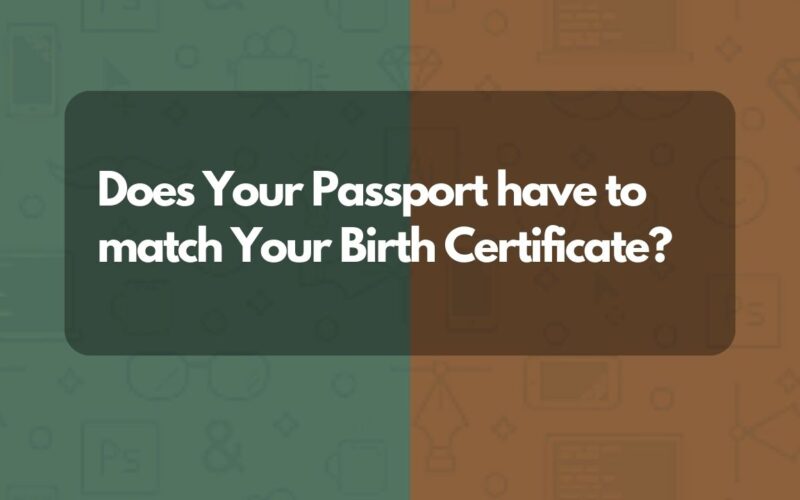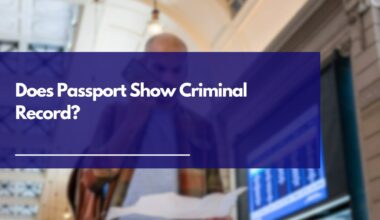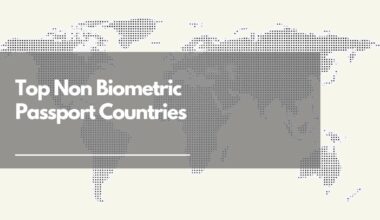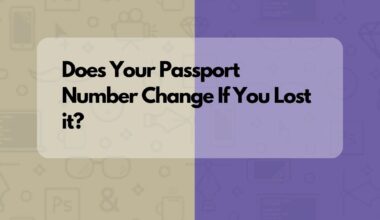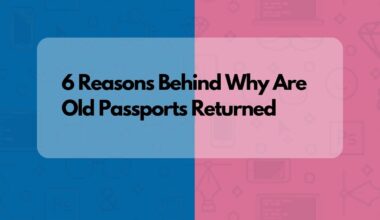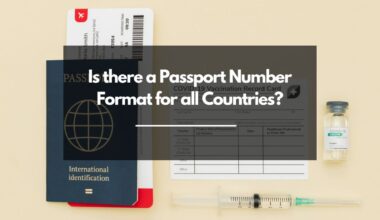As an Amazon Associate, I earn a small commission from qualifying purchases. Learn more about this.
The first time I applied for a passport, I felt lost in a sea of questions. One that kept floating to the top was, “Does my passport name need to be the same as on my birth certificate?” I know I’m not alone in this. So let’s cover this together.
Does Your Passport have to match Your Birth Certificate?
It’s important to understand what we’re dealing with.
A passport is a travel document, yes, but it’s also an official identity document. It needs to accurately reflect who you are. It’s not just about matching your face to the photo; your name, birth date, and other personal details are equally significant.
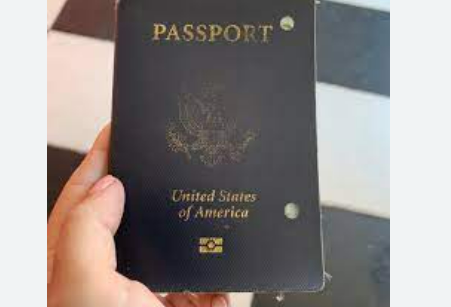
Now, your birth certificate, that’s the first legal document most of us ever have. It’s a record of our birth, and it establishes our identity in terms of our name, age, birthplace, and parentage.
Simple, right?
But here’s where things can get a bit tricky. People change names, maybe due to marriage, personal choice, or any other reason. Some of us use nicknames so frequently that our original names feel like a formal attire that we wear once in a blue moon.
However, when it comes to legal and official matters, consistency is key.
When you’re applying for your passport, the name on the application must match the name on your proof of citizenship – and your birth certificate is a primary document here.
If the names don’t match because you’ve had a name change, you’ll need to provide legal documentation of the change, like a marriage certificate or a court order.
Here’s something else: mistakes happen.
Maybe when you were a squalling newborn, your parents decided to name you one thing, but a clerical error at the hospital recorded it as something else.
If the name on your birth certificate is incorrect, it’s advisable to get it amended. This will save you a potential headache when applying for a passport or when traveling internationally.
What happens if your passport has a lot of discrepancy with your Birth Certificate?
You know, discrepancies between documents remind me of those mismatched socks we all have. They might seem insignificant at home, but imagine showing up to a formal meeting with one green and one yellow sock.
That’s how discrepancies between your passport and birth certificate might feel at the border – uncomfortable and potentially embarrassing.
But what exactly happens if there’s a discrepancy between these two crucial documents?

Well, the consequences can range from a simple delay to more severe implications. Minor discrepancies, like a misspelled name, might cause officials to hold you up for a bit.
They’ll want to cross-check other documents or ask a few questions to ensure you are who you claim to be. It’s their job to keep borders secure, after all.
However, significant discrepancies – like a different birthplace or a completely different name without any legal name change documents – those can cause real problems.
We’re talking about missing your scheduled flights, being detained for further questioning, or, in extreme cases, being denied entry into a country. It can turn a dream trip into a real nightmare, trust me.
The bottom line is that any discrepancy can lead to doubt about your identity, and in a world where security is paramount, doubts can lead to unexpected hassles.
It’s always better to prevent these situations.
If you spot a discrepancy, consider reaching out to legal professionals or the appropriate government department to get advice on amending your documents.
It might feel like a chore (and who loves those?), but ensuring consistency between your birth certificate and passport is one of those adulting tasks that just can’t be avoided.
Let’s talk about how to get these done in the next section.
What to do if your passport has different details with your Passports
1. Understand the Discrepancy
First, take a deep breath and pinpoint the discrepancy. Is it a minor spelling mistake? Or is it a significant difference, like an entirely different name or place of birth?
Understanding the nature of the discrepancy will determine your next steps. Minor errors can sometimes be explained with a sworn affidavit, but for bigger ones, you might need legal advice.
2. Contact the Issuing Authorities
If you find any discrepancies, regardless of how small they may seem, contact the passport office or the vital records office where your birth certificate was issued.

Explain the situation in detail. If the mistake is on your passport, you might need to submit a passport correction application.
On the other hand, if the error is on your birth certificate, you’ll need to request an amended copy. Remember, these processes take time, so it’s best not to delay.
3. Gather Supporting Documents
You’ll need to prove that the discrepancy is just that – a discrepancy.
Gather any legal documents that can support your case, like a marriage certificate if your last name has changed, or a court order for a legal name change.
If it’s a case of a simple spelling error, other forms of identification that show your correct name might suffice.
4. Stay Informed and Follow Up
After you’ve submitted the necessary applications and documents, don’t just wait in the dark. Stay informed.
Check the status of your application regularly, and don’t hesitate to follow up. These matters can take time, but a gentle nudge can sometimes remind the authorities to turn their attention to your case.
The key here is not to panic.
Yes, it’s a stressful discovery, but it’s a fixable problem.
The most important thing is to act swiftly and be thorough in your communications with the relevant authorities. Ensure you provide all the necessary supporting documents and double-check for any additional requirements specific to your case or location.
Conclusion
In a nutshell, while your passport doesn’t have to be a carbon copy of your birth certificate, they must be connected by proper, legal documentation, ensuring your identity is consistent. It’s about dotting your i’s and crossing your t’s in the eyes of the law.
